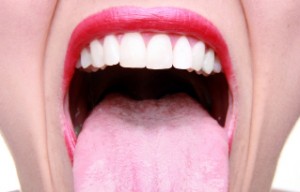 Dry mouth, also known as xerostomia, is a condition caused by a lack of saliva production in the mouth. Dryness may be minor and simply bothersome causing hoarseness and thirstiness, but can also be damaging as it may leave teeth more prone to deterioration or bacteria and can cause mouth sores and difficulty digesting properly.
Dry mouth, also known as xerostomia, is a condition caused by a lack of saliva production in the mouth. Dryness may be minor and simply bothersome causing hoarseness and thirstiness, but can also be damaging as it may leave teeth more prone to deterioration or bacteria and can cause mouth sores and difficulty digesting properly.
Over 1800 commonly used medicines produce a side effect of dry mouth. This includes antidepressants, anxiety medications, pain relievers, antihistamines and treatments for breathing disorders, obesity, epilepsy, bowel or urinary irregularities, high blood pressure and even acne. Patients who are undergoing radiotherapy or chemotherapy are also very likely to experience dry mouth.
Oral dryness may also be caused by more serious conditions such as:
Everyday sources of dry mouth may be linked to dehydration, smoking or using tobacco.
Persons with dry mouth are typically advised to keep hydrated by drinking plenty of fluids and to avoid breathing in through the mouth. If dryness is caused by a medicine, use of this medicine may need to be ended or adjusted. Patients may be prescribed Salagen, a medication that assists in the production of saliva or implementation of a vaporizer to create more moisture in the air.